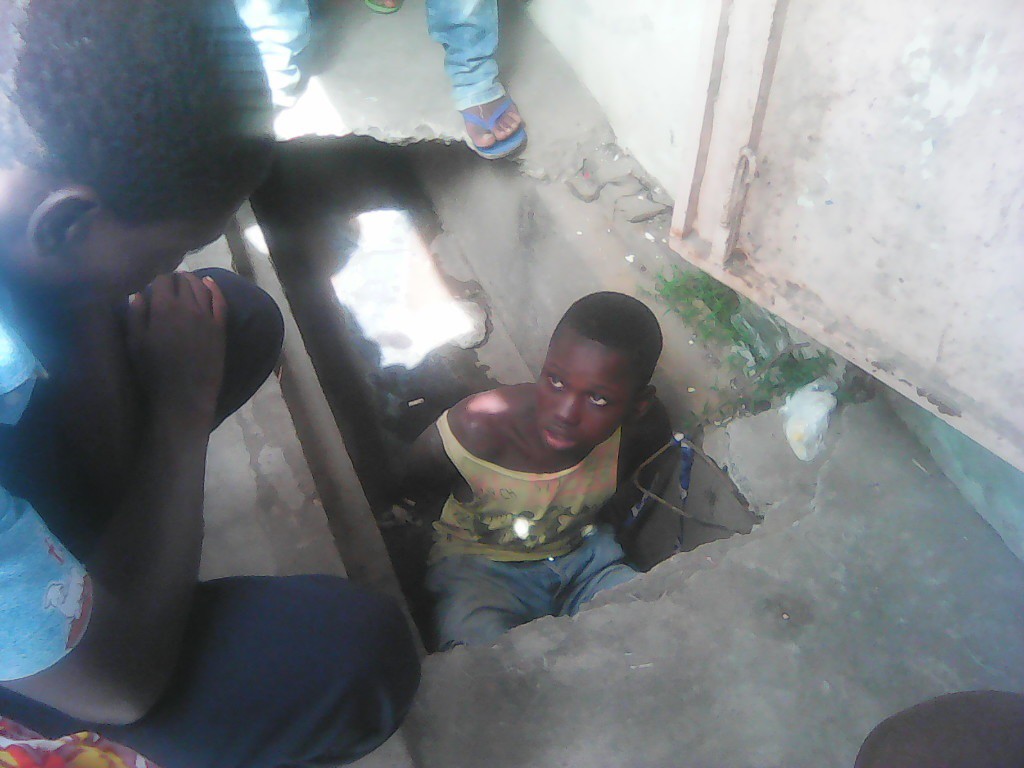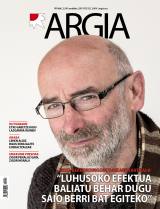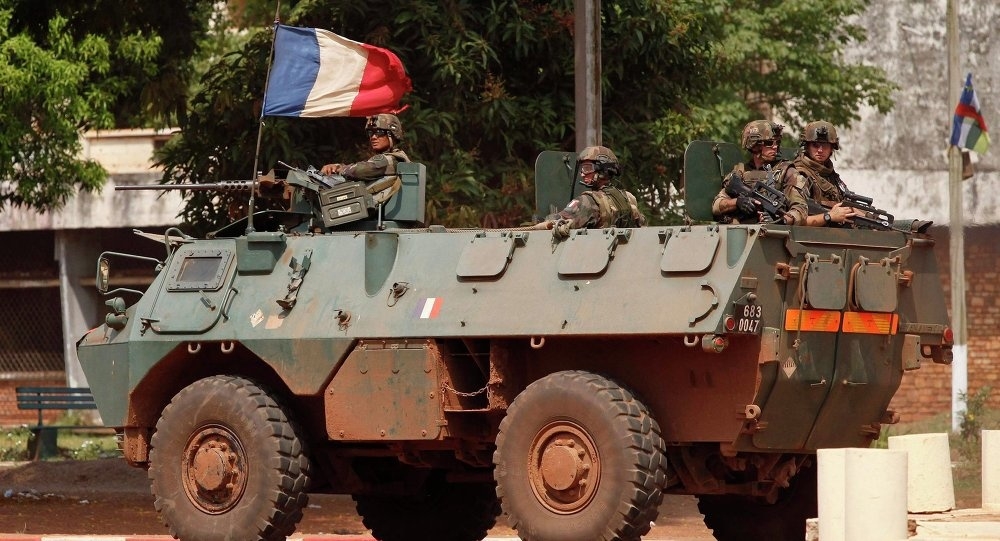The young 'microbes' of Côte d'Ivoire do not fear death or murder
- Young vagabunds who wander the streets, soldiers who have not arrived after the civil war, immature young girls harassed by military lords... Who and what are the children between the ages of 8 and 25 who spread panic in the capital of Côte d'Ivoire? Since Central America has maras and Brazil favela bands, the Ivory Coast microbes are cited in the large cities of West Africa.

The term Côte d'Ivoire is, for most Europeans, the origin of certain coffees and, more around us, scented chocolate. Inspired by these coffees and cocoa, it was the economic engine of West Africa during the 1960s and 1970s. But in the 1980s, Côte d'Ivoire plunged into a deep economic crisis, which brought with it the era of political and social disorder.
After the colony of France since the 19th century, it achieved independence in 1960 and since then Félix Houphouët-Boigny presided until 1993, maintaining a close relationship with the West and especially with France, that is, dependence. Since then, Côte d'Ivoire has suffered a coup in 1999 and two civil wars based partly on religious conflicts. Between 2002 and 2007, more than 3,000 deaths were recorded due to the seasonal flu crisis. In the second, supporters of Laurent Gbagbo and Alassane Ouattara, who intended to win the elections in 2010 and 2011, fought for at least 3,000 more people than in 2010.
That is why Hamed Bakayo said that Abidjan’s “microbes” are primarily children traumatized by war. He is a minister of Bakayo and won the elections and the war in the Ouattara government. In contrast, the Le Monde newspaper published a new description of microbes in spring 2016: “Young people living on the street with nothing to do are becoming more and more violent against the rest of the population. And the authorities don't want to address the problem." In other words, they are protected by the authorities.
On the blogs of Le Monde Diplomatique, Sabine Cessou has written the interesting “Ivory Microbes, the aftermath of the crisis.” “What are microbes? This social phenomenon has manifested itself after the tremendous electoral crisis of 2010-2011 and is one of its most spectacular sequelae in history. Young boys, between the ages of 8 and 25, are grouped into bands of between 15 and 20 members making burglaries with knives, axes, machetes and clubs in the streets of the Abidjan capital. Also called ‘road cutters’, the posters of Abobo, Adjamé, Yopougon, Anyama and Attécobé are terrified.”
Burglaries, rapes, assaults and beatings of all kinds -- in addition to the press, social media is also often heated with the disadvantages of microbes. The death of 23-year-old Claude Larissa Advocny caused a great impression. On their way home early in the morning, they took away his mobile phone and later killed him from a machete, supposedly members of the gaztxes of the Yopougon neighborhood.
Last May, the Police organized a raid to control these neighborhoods and try to locate suspected young people. In three months, 11,500 people were missed, of whom 250 were charged for the crimes of homicidio.Se hundreds of weapons intervened, including several pistols and calaxnikov, 2,950 tons of cannabis cannabis cannabis cannabis cannabis cannabis were seized, and 166 burning facilities were seized.
The phenomenon has spread in such a way that the justice of citizenship has entered the salsa, that is, the lynching, until killing several shefs of microbes, the most famous cut his head in 2015 Mamadou Traore Zama and in March 2016 died of rebellion and opened from the throat to the navel, Diaby Mamadou “Pythagore”, only 18 years old.
The ‘power of the young’ in the streets
In the accounts of some journalists, in the spring of 2016, nine microbes were killed by citizen patrols in a vicious cycle of attacks and revenge on each other. And the war of juvenile gangs and patrols does not seem to appease, as one acquaintance from the Abobo neighborhood has said: “We cannot wait for the government to solve the problem. Families have suffered more than five years, everyone knows. If the government is complicit in these microbes, it doesn't matter. At our level, we will do the job of destroying them.” They will hardly kill them all.
According to sociologist Kane Rodrigue Fahiraman, these kinds of bands are seen in big cities around the world: “One of the characteristics of these microbes baptized by public opinion is to take people’s lives off. The name is taken from one of the gangs that appear in the Brazilian film The City of Deu. The clinical microbial metaphor represents the smallness of living things, which, although cannot be seen with the eyes, are violent and harmful to the organism that is society”.
The society of Côte d'Ivoire has suffered the hardships of all classes in the last three decades, since the prices of raw materials, mainly cocoa, collapsed in 1990. Unbalanced state finances, the Government of Abidjan resorted to the International Monetary Fund and the World Bank thanks to credit, and the neoliberal formula they established has only made things worse in the coming years.
According to the documentary Espoir d’un emploi (The Hope of a Job), produced by sociologist Francis Akinde, in Boliksta – 2014 data – 23 million people are officially 430,000 unemployed in 2014. But I don't make it wrong. Black workers are also considered “employers”, i.e. 91% of all workers! Therefore, low labour force numbers do not reach 19%. Unemployment is massive. “It is youth,” says Akin- who knows how to mobilize for society the intellectual as the physical energy of that immense weapon. Youth becomes a source of danger when their childhood is prolonged and delayed enough to enter the adult world.”
To that must be added the two civil wars of recent years. Like Gbagbo, Ouattara's troops used children and young people in the war, with the psychological trauma he has brought them. The adults who were their model have seen the other adults die, often in a terrible way. And they too, kids or teens, have encouraged them to do the same thing. They've learned to use weapons, to lose the fear of horror, and to get used to killing anyone who has stood by them if they're an enemy or an enemy.
Kane Rodrigue sees in the attitude of young people in gangs the need for society to take them into account. Poverty, the disillusionment of the public authorities, the breakdown of families, drug trafficking and, after all, also war, have brought the birth of this “youth power” of the neighborhoods that has forced them to integrate into the street. “As they have grown without hope for the future, violence gives meaning to young people. With violent actions, they come out of anonymity, the media talk about them, the adult people recognize them a power in society. This desire to be recognized is materialized in violent actions: by leaving the victim’s body marked forever, with wounds, they leave spectacular stains on the marks”.
Igandean egingo da Boli Kostako presidentetzarako hauteskundeen bigarren itzulia. Bi hautagai lehiatuko dira: Laurent Gbagbo egungo presidentea eta Alassane Ouattara lehen ministro ohia. Hauteskundeek, Boli Kostaren independentziaren 50. urteurrenarekin bat egin dute. 1960ko... [+]













